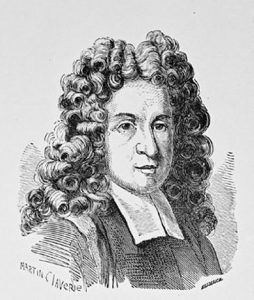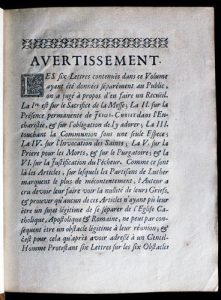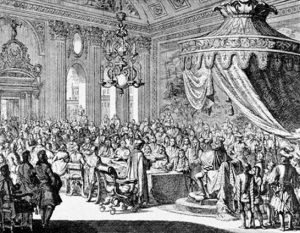A pastor in the Countries of Refuge
Jacques Saurin was born in Nîmes in 1677.
He studied theology and philosophy in Geneva, where his family had sought refuge at the revocation of the Edict of Nantes.
As soon as he became pastor in 1700, he went to Holland, then to London, where the Walloon church appointed him as one of their pastors in 1701. In 1705, he settled in the Hague, where he was a pastor for 25 years.
He had a great reputation as an orator
He was especially well known for his eloquence. Judging by the critics, he spoke boldly, his thinking was original, his style was somewhat similar to that of Bossuet. His sermons were well structured and he expressed himself clearly – one could almost say that his sermons sounded like conversations.
The ideas behind this eloquence were both “liberal” and rational – he was as frank as he was tolerant. He dealt with all the main subjects of theology and ethics but was not concerned with controversy – he remained on distant terms with the Court of Rome.
He wrote a great many works
Many of his sermons have been published – there are 12 volumes, 5 of which he published himself between 1708 and 1725.
For example :
- Discours historiques, critiques, théologiques et moraux sur les événements les plus mémorables du Vieux et du Nouveau Testament, Amsterdam, 1720-1728.
- Abrégé de la théologie et de la morale chrétiennes, en forme de catéchisme, Amsterdam, 1722.
- État du christianisme en France, La Haye, 1725.




